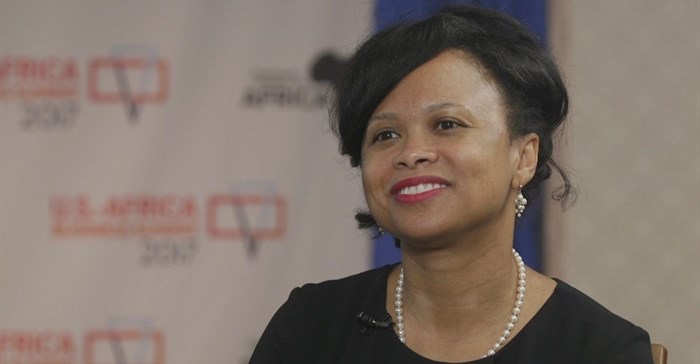In its latest episode, Marketplace Africa, hosted by Zain Asher, has explored South Africa's wine making industry. During the episode, the co-founder, president and CEO of Heritage Link Brands, Selena Cuffe talks with CNN International about how her company creates opportunities for young black people wanting to break into the wine industry.
Cuffe explains to CNN Marketplace Africa: “Through Heritage Links Brands, I get to live out my dream, which is to change people’s perceptions in a good way about Africa and her diaspora.”

Image Supplied
Inspired by a visit to the Soweto wine festival, Cuffe describes the lightning bulb moment that motivated her. “I was just mesmerised. I fell in love. And the very first booth that I stopped at was a woman of colour and she made this amazing rosé. I asked her, “Where can I get your wine in the States?” and she laughed in my face. She said, “I’m sorry sister. We’re barely getting distribution in South Africa, let alone being able to think about exporting our wine.”
Changes and trends
Speaking about the changes over the last 12 years and current trends Cuffe explains: “Today there are more than 35 different black owned wine brands and black owned vineyards. So, we’ve seen a trend in just the growth of the industry. There is still a way to go. Within the $3bn industry, blacks probably represent less than 30 million in annual revenue for that industry. But what I see happening for not only the owners who happen to be of colour, but also for consumers, is just a growing adoption of different types of wine that maybe are different than what has been cultivated for the tradition European palate. So, we are seeing many more sweet wines hit the market.”
Cuffe goes on to explain that most of the wine in South Africa is exported because largely people drink beer and spirits. There is, however, change taking place as Cuffe reveals: “We have seen a dramatic shift in that process and you are seeing not only South African wineries but also Californian wineries looking to speak to the South African consumers.”
Export markets
Asher and Cuffe go onto discuss the main export markets for South African wine: “Nigeria is a very important market. The United States, China is a growing market… Europe because of the cultural ties that have existed specifically in the UK, and the Netherlands continue to be strong markets not only for black produced wines but generally the South African wine market,” Cuffe remarks.
Looking back over the success of Heritage Link Brands and considering the future for other African wine makers, Asher asks Cuffe what her advice would be to those who may be hesitant about working in the wine industry. Cuffe recommends that it is important to learn about wine and also identify new opportunities. She says newcomers should, “speak to as many people that are in the wine industry as they can to explore not only how they can produce good wine or put their name on an existing wine label, but there are so many innovations within the wine industry now.”






































